第82章 Appendix I:Production,Consumption,Distribution,Exc
Quite apart from the crude separation of production and distribution and their real interconnection,it should be obvious from the outset that,however dissimilar the mode of distribution at the various stages of society may be,it must be possible,just as in the case of production,to emphasise the common aspects,and it must be likewise possible to confuse and efface all historical differences in laws that are common to all mankind .
For example,the slave,the serf,the wage-worker,they all receive an amount of food enabling them to exist as a slave,serf or wage-worker.
The conqueror who lives on tribute,or the official who lives on taxes,or the landowner who lives on rent,or the monk who lives on alms,or the clergyman who lives on tithes,all receive a portion of the social product which is determined by laws different from those that determine the portion of the slave,and so on.The two principal factors which all economists include in this section are:1)property and 2)its protection by the judiciary,police,etc.Only a very brief reply is needed:
Regarding 1:production is always appropriation of nature by an individual within and with the help of a definite social organisation.In this context it is tautological to say that property (appropriation)is a condition of production.But it is quite ridiculous to make a leap from this to a distinct form of property,e.g.,private property (this is moreover an antithetical form,which similarly presupposes nonproperty as a condition).History has shown,on the contrary,that common property (e.g.,among the Indians,Slavs,ancient Celts,etc.)is the original form,and in the shape of communal property it plays a significant role for a long time.The question whether wealth develops faster under this or under that form of property is not yet under discussion at this point.It is tautological however to state that where no form of property exists there can be no production and hence no society either.Appropriation which appropriates nothing is a contradiction in terms.
Regarding 2:safeguarding of what has been acquired,etc.If these trivialities are reduced to their real content,they say more than their authors realise,namely that each mode of production produces its specific legal relations,political forms,etc.It is a sign of crudity and lack of comprehension that organically coherent factors are brought into haphazard relation with one another,i.e.,into a simple reflex connection.The bourgeois economists have merely in view that production proceeds more smoothly with modern police than,e.g.,under club-law.They forget,however,that club-law too is law,and that the law of the stronger,only in a different form,still survives even in their "constitutional State".
While the social conditions appropriate to a particular stage of production are either still in the course of evolution or already in a state of dissolution,disturbances naturally occur in the process of production,although these may be of varying degree and extent.
To recapitulate:there are categories which are common to all stages of production and are established by reasoning as general categories;the so-called general conditions of all and any production,however,are nothing but abstract conceptions which do not define any of the actual historical stages of production.2.THE GENERAL RELATIONS OF PRODUCTION OF DISTRIBUTION,EXCHANGE AND CONSUMPTION Before starting upon a further analysis of production it is necessary to consider the various sections which economists place alongside it.
The quite obvious conception is this:--In the process of production members of society appropriate (produce,fashion)natural products in accordance with human requirements;distribution determines the share the individual receives of these products;exchange supplies him with the particular products into which he wants to convert the portion accorded to him as a result of distribution;finally,in consumption the products become objects of use,i.e.they are appropriated by individuals.Production creates articles corresponding to requirements;distribution allocates them according to social laws;exchange in its turn distributes the goods,which have already been allocated,in conformity with individual needs;finally,in consumption the product leaves this social movement,it becomes the direct object and servant of an individual need,which its use satisfies.Production thus appears as the point of departure,consumption as the goal,distribution and exchange as the middle,which has a dual form since,according to the definition,distribution is actuated by society and exchange is actuated by individuals.In production persons acquire an objective aspect,and in consumption'objects acquire a subjective aspect;in distribution it is society which by means of dominant general rules mediates between production and consumption;in exchange this mediation occurs as a result of random decisions of individuals.
Distribution determines the proportion (the quantity)of the products accruing to the individual,exchange determines the products in which the individual claims to make up the share assigned to him by distribution.
Production,distribution,exchange and consumption thus form a proper syllogism;production represents the general,distribution and exchange the particular,and consumption the individual case which sums up the whole.